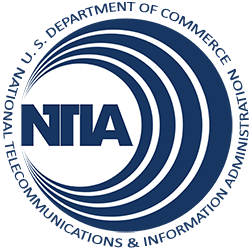BTOP’s Reach to Community Colleges
By Laura Breedon, BTOP Program Director for Public Computing and Broadband Adoption
Last week, Dr. Jill Biden hosted the first ever White House Summit on Community Colleges, at which President Obama spoke.
The summit brought together community colleges, businesses, philanthropic organizations, federal and state policy leaders, and faculty and students to discuss how community colleges can help meet the job training and education needs of the American workforce.
Here at NTIA we are well aware of the critical role these anchor institutions play in their communities, and investing in broadband technologies for these institutions is a top priority. In fact, BTOP projects plan to directly connect approximately 600 community colleges across the country to broadband. These are among the 24,000 community anchor institutions that will be connected via BTOP projects.
The projects will provide high-speed connections that will enable students and faculty to use remote data sets, simulations, and other tools to learn and practice new skills as well as to collaborate with other classrooms in real-time. They will also improve education by bringing distance learning to schools in remote areas, enabling students to conduct online research, and helping teachers and parents to communicate with one another.
BTOP projects will also support public computer centers; jobs skills, computer, and workforce development training; and digital literacy initiatives on community college campuses throughout the United States. Some examples:
- The SC Reach for Success project is expanding the capacity of 51 public computer centers and creating 19 new computer labs at the South Carolina Technical College System’s sixteen community colleges – the state’s largest higher education system, with 114,000 degree-seeking students and 128,000 continuing education students. The project is also providing quick turn-around job skill workshops in a state with one of the highest unemployment rates in the country.
- The Foundation for California Community Colleges’ California Connects project will provide an estimated 3 million hours of teacher-led training and educational support to increase digital literacy skills and encourage broadband usage among students and their families, especially among low-income Hispanic residents in California’s Central Valley region. Almost 5,800 community college students will receive laptops for schoolwork and to communicate with their families.
- The University of Hawaii’s Access for All public computer center project will provide 693 new public access broadband-connected computers in over 60 public facilities, including every public library and community college and their remote education centers, on the six major islands of the state of Hawaii.
- The Pathways to Broadband Access and Technology Education project , spearheaded by the Missouri Department of Higher Education, will establish or expand 23 public computer centers throughout the state, including at seven community colleges with more than 55,000 students.
- The Metropolitan Community College in Kansas City, part of the Pathways to Broadband Access and Technology Education project , plans to use a mobile public computer center to deliver broadband access throughout its community.
- The District of Columbia’s DC-BETA project will provide digital literacy training at eight libraries and three Community College of DC locations, complete with multimedia and technical certification programs.
- The New York State Department of Labor is partnering with several local community colleges through its One-Stop BEAM project to train over 68,000 residents in skills and technologies to help them compete in today’s economy. Training will focus on basic computer classes, distance learning, remote training and counseling, and training and certification for green jobs.
At the summit, President Obama said, "The idea here is simple: We want to make it easier to connect students looking for jobs with businesses looking to hire. We want to help community colleges and employers create programs that match curricula in the classroom with the needs of the boardroom.” These broadband investments can be an important part of the solution.
Find out about other projects that are connecting community colleges here: www.ntia.doc.gov/broadbandgrants/awards
